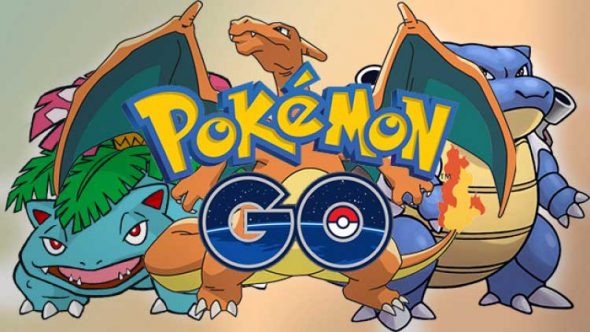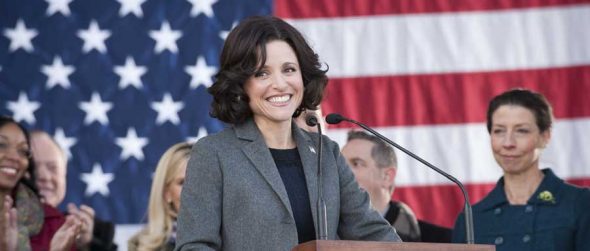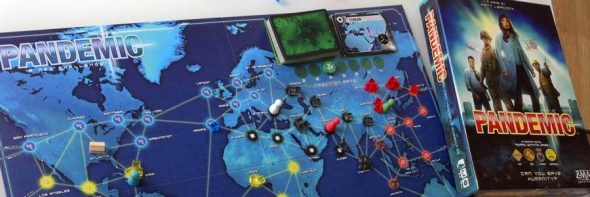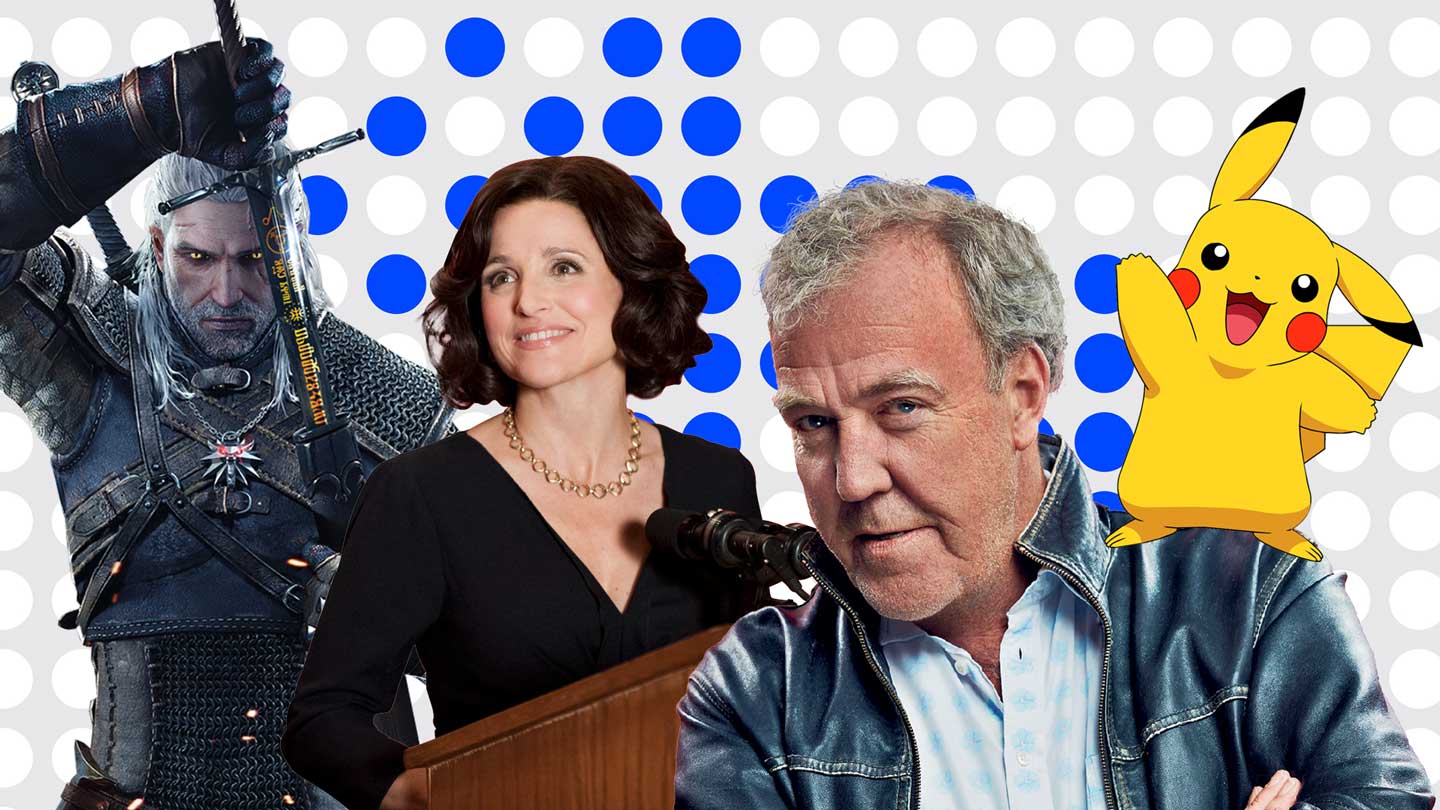Matt Belinkie: Guys, for some reason I’ve found myself a little out of sorts recently. I’m feeling anxious about the future, saddened by the present, nostalgic for the past. Not sure what could be causing that. Maybe it’s seasonal affective disorder. Maybe our new President is a big rotting pumpkin head. Who knows. But in times like these, I’m all the more thankful for pop culture being around to distract, uplift, and enlighten us.

I’m particularly thankful for Pokemon Go, which has hovered somewhere between “pleasant distraction” and “unhealthy fixation” for me ever since it launched in July. It must first be said that PoGo is a pretty terribly designed game, with almost no skill or strategy involved. It’s basically sheer, relentless grinding. (The grinding is somewhat literal, as the large majority of the Pokemon you catch are traded in for candy. You don’t have to be a fan of Soylent Green to speculate on where the candy comes from.)
But guys, if you’re looking for a time-killing distraction, Pokemon Go will do the trick. It forces you to get off the couch and out the door, which in itself is an achievement if you’re a couch potato like me. More importantly, it insists that you keep the app open – no browsing the internet while you play, at least on iOS. In a world where the urge to constantly check your email, your social media, and your newsreader is a constant, insatiable itch, playing Pokemon Go provide a respite (by giving you a NEW constant, insatiable itch to focus on).
And as the father of an 11-year-old boy, Pokemon Go has probably been the number one topic of conversation between us since the summer. He is deeply obsessed, and can rattle off the stats of his top ‘mon from memory. It’s a little disturbing, but I think there’s something in boys that drives them to cultivate collections (when I was a kid, it was comic book cards). It just so happens that Pokemon Go is something I not only understand but can collect along with him on countless long father-son walks. We go outside for long walks, we talk about life, we retell stories of our greatest catches and heartbreaking misses. In a strange way, the fact that the game is so shallow makes it perfect to play with other people; you barely have to concentrate on what you’re doing, which means that you can concentrate on who you’re with.
I can rant for hours about all the glaring design flaws in this game. Every once in a while I feel like I’m on the verge of putting it down forever. But the next day I walk out the front door, check my radar, and smile.

Peter Fenzel: I am thankful for The Grand Tour. Just the opening scene of this Amazon series cost $3.2 million dollars. It was profoundly beautiful, utterly decadent and out of scope with its subject matter, and it reduced me to a blubbering, teary mess. Based on online conversations, I’m far from the only one. Cut loose one of the most superfluous lost causes in contemporary entertainment, a man who needs no defense, walk with him, grey and fat and silent, pay the British Airways ferryman to bring him across Atlantic River Styx like the shade he is — I just watched the opening again to remember the color order of the Mustangs (blue first, then red then white), and I was full-on weeping again. Maybe I’m just that deeply exhausted. The hundred and fifty fantasy cars screaming across the California desert on a real-life pilgrimage to the strangest sacred thing. It’s all too much, and so welcome.
I’m thankful for four television series in 2016 above all the others: Guy’s Grocery Games (as I repeat and insist on our podcast, the best show on television), Better Call Saul (which at this point feels like a distant memory. Come back! You are actually the best show on television!), Bitchin’ Rides, an adorably human riff on Pimp My Ride set in a Salt Lake City hot-rod shop, featuring my favorite TV surrogate family, and Top Gear.
Ah, Top Gear. I had never even heard of the show before 2015 at the earliest, and this year, I have binge-watched 14 seasons of the definitive British car review talk show (and when you call it that, it seems so very minor). Now, granted, they are British series, not American seasons, often with just 6 or so episodes, capped with a big international road trip. But that’s still a lot of television, a lot of it being now-irrelevant reviews of cars that are no longer on the market and topical talk about news reports from seven or eight years ago.
Still, there are reasons that Top Gear has been in the Guinness Book of World Records this decade as the world’s most popular factual entertainment show. Its heelish brown-blazered dad-rocker of a mastermind, Jeremy Clarkson, understands what’s important about what he loves to do (hint: Like all the greatest pop culture about cars: it’s not about the cars.) And yet, when he was booted / asked to self-boot from his tremendously popular program for punching a producer and calling him Irish ethnic slurs after being provided with cold lunch meats instead of a hot dinner one day, it would have been fine if he were done. He’s way too often casually racist or demeaning. He seems always on guard for the schoolyard bullies who once tormented (and you see the fear whenever he’s around Simon Cowell, oddly enough) and he has made the folly of overcompensation his life’s work. He’s a millionaire in his 60s (scratch that, he’s in his mid-50s, he really should take better care of himself), he’s British, he’s prosperous, his show is still running even without him, missing him, but in season 23. It is okay if he is done.
But he wasn’t done.
The Grand Tour is as much of Top Gear as Amazon could buy with as large a pile of money as any man has extorted from a patron for a work of vanity ($200 million in budget for three seasons). It does things no TV show needs to do, like “court the eternal wrath of Ferrari,” “drop Jeremy Renner out of an airplane,” and “look tremendous in 4K.” Adrift from losing their BBC studio, the team has traveled around the world, setting up a studio tent to film the talk segments of each episode in a different exotic global location. The tents have become beacons to auto enthusiasts for hundreds of miles around – buzz about the filming of the show is part of the experience of its metamorphosis and return (as of this writing, they just wrapped up in Nashville, and we’re between the first and second episode releases on Amazon). Episode one was in California, episode two is in Johannesburg.
But more than the globetrotting and spectacle, and more than the cars, I’m thankful to see the three of them come back together. The Grand Tour reunited Jeremy Clarkson, Richard Hammond, and James May, a comedy talk show team that might just be irreplaceable – not because they are the best (though in technique and rapport over time, they very well may be), but because they have been grandfathered in, while the rest of the world has moved on.
Let’s face it, there is no universe that makes sense in which Jeremy Clarkson is first in line for all the world’s blessings. I think he knows that as much as anyone. But there’s something about watching him come back to life and reunite with his team that inspires hope that maybe we can all come back to life, too. Maybe each of us also get a live rendition of the Hothouse Flowers cover of “I Can See Clearly Now (The Rain is Gone)” when we reach our tents in the desert.
And like orangutans real and metaphorical, when we are endangered, let us survive, and let bright-eyed people pack their cars and drive hundreds of miles just to see us and love us.
Oh, and by the way, both Top Gear and The Grand Tour are comedy shows where the presenters do more or less earnest video reviews of mostly fancy automobiles in mostly exotic locations, and intersperse those with goofy challenges in off-kilter wrecks (can you get a rear-wheel drive convertible that costs less than $2000 across the roughest roads in South America?) and in-studio talk show segments. Think Jackass meets Conan O’Brien meets The Commercials During a Golf Tournament.

John Perich: I am thankful for The Witcher III: Wild Hunt, a game that is good in all the ways a game should be, but none of the ways a game apparently needs to be in the 2010s. It’s a meticulously detailed single-player action RPG, set in the fantasy landscape of a Polish novelist, and it satisfied me more than any game since Morrowind.
There’s plenty for which it needs to be excused: gratuitous sex scenes, a fantasy Europe that doesn’t go much farther afield than “D&D run by Warhammer fans”, the paucity of red mutagen.
But the voice acting is better than any game I’ve played in recent memory. The characters are more complex – their motivations fall so far outside the standard “good guy / bad guy” buckets, or even the “good guy but complicated” buckets, that I’d feel childish playing anything less sophisticated. And the story itself got me emotionally invested in a way that only good movies usually can.
On top of that, I had fun with a playstyle that I never thought I’d enjoy – high-stakes combat where two or three mistakes in a row result in your messy death, where your best defense is cagey use of buffs and a relentless grind for upgrades. I hate that sort of playstyle in other games, but I loved it here, maybe in part because the setting seemed to justify it. It makes sense that a lone man, skilled as he is, could be laid low by three schlubs with swords … if they gang up on him and fight smart.
In addition to fast-paced games like The Witcher III, I’m also thankful for slow-paced games. I’ve rediscovered turn-based games on Steam: Darkest Dungeon, Invisible Inc., Sentinels of the Multiverse, the recent Shadowrun series. I prefer the grand, leisurely pace of considering a single move for 2 to 3 minutes at a time. And the games don’t suffer for quality despite not being AAA console titles.

Mark Lee: I’m thankful for the podcast Reply All, which is ostensibly about Internet culture, but is of course much more than that. Take their investigation of bizarre Google search-based scams: on the surface, they explain how unethical actors have exploited Google search results to prey upon desperate people needing a locksmith or a lost & found service. Beyond that, they speak to the actual humans behind the searches and the search results, and in the process, reveal essential truths about human nature that the Internet amplifies billions of times over. Their investigative reporting knows no rabbit hole too strange or obscure to go down, mirroring the best—and worst—of our own internet browsing activity. They “go there,” and they “go there” good.Startup entrepreneur loses millions of photographs uploaded to his failed cloud storage service? Talk to him and explore his sense of guilt and obligation to his users. Go there. Random teenager who becomes the butt of internet jokes, but may have died tragically? Travel to his hometown and talk to his high school friends, who may have fabricated his death. Go there. Blogger who publishes to the internet from prison via letters to his mother? Investigate the grisly crimes he’s accused of, and come face to face with murderous psychopathy. Go there.

Ryan Sheely: Even though Politics is one of the things that has thrown us all off this year, the pop culture that I am especially thankful for is Veep. I had tried to get into the series from the beginning several times over the past few years, and it never quite took for me. The characters were too nasty and too incompetent, and the stakes were too low. While that was part of the point— the self-reinforcing mediocrity of the vice-presidency— I found it just too depressing to engage with. But then, I happened to stumble upon Season 4 on a flight earlier this year. This is the season in which Selina Meyer, has just become President after the commander-in-chief resigns, and which charts her ultimately unsuccessful election campaign, which ends in a tied electoral college and a vote in Congress. In this season (and the following season, which covers the politicking in the period between election day and the House vote on the presidency), all of the previous bugs of the show become features. As the stakes raise to the level of the presidency, the vanity and narcissism of Meyer and her senior staff doesn’t decrease- if anything it increases, with even more and more disastrous (and hilarious) results. The appeal of Veep during an increasingly distressing and depressing election season was not just that it showcases a jaundiced view of Washington and a case study in why the swamp needs to drained. Rather, it presented several ongoing conflicts in American politics that kept coming up during the election (and promise to keep coming up over the next four years), conflicts between self-interest and public service, between individuals and institutions. As I watched Selina Meyer’s fictional election campaign instead of the actual 2016 election coverage, I was oddly comforted by the show’s message that failure in American politics is not because of corrupt individuals or a rigged system, but is the result of flawed, idealistic individuals fumbling their way through an opaque institutional maze, guided jointly by self-interest and the public good. Oddly, I found that comforting as I laughed through my tears.

Ben Adams: I’m thankful for the rise (or at least my new found awareness of) cooperative gaming (both tabletop and video). In the last year or so I’ve started playing the board game Pandemic, which is a cooperative game where you and your friends have to work together against the clock to stop a series of global plagues. I’m grew up in a house of cutthroat competition when it came to board games, so I’m always up for a game of no-holds barred Scrabble (if you don’t know your 2 letter words, you’re going to get got). But those types of games aren’t always the best fit – when you’re with a group of new people, or just want a more relaxing type of play, it’s fun to work together instead of against each other. Some people, it turns out, dont LIKE trying to bankrupt their friends and loved ones.
In a different way, the video game Destiny‘s cooperative game design saw a similar benefit – I have two brothers and Destiny encourages a 3-person Fireteam, so my PS4 time doubles as a great opportunity to catch up with family while killing space aliens at the same time. The paradigm for games has been “I win you lose” for so long that it’s great to have an alternative.
And what are YOU thankful for? Yes, you. Let us know in the comments! And happy Thanksgiving from the whole crew here at OTI.

Jesus, Fenzel made it to 2015 without even hearing of Top Gear?? Is that OverthinkingIt being out of touch again, or American insularity at its most extreme??
Not exactly “pop culture”, but the Olympics this year were pretty good. And the Cubs did win the World Series, so there’s that……
For the purposes of this discussion, sure, sports is pop culture!
Cubs winning has its obvious satisfaction, but I’m curious to hear more about what you liked about the Olympics this year, compared to other years. I only half paid attention this year, and my mind goes to a couple negative narratives around the Olympics: 1) the staggering costs to the host cities and 2) NBC’s less-than-stellar presentation of the games to US audiences. What did you like about the Rio games?
Nine “countries” – Fiji, Kosovo, Vietnam, Puerto Rico, Jordan, Côte d’Ivoire, Bahrain, Tajikistan, and Singapore won their first ever gold medals. Ten, if you include Kuwait (whose athletes had to enter under the “Independent Olympic Athlete” banner since the country’s national Olympic committee was disqualified).
https://pureblather.com/2016/08/24/first-time-gold/
Japan’s Prime Minister Shinzo Abe appearing as Mario in the closing ceremonies was delightful; and Mariene de Castro’s rendition of “Pelo Tempo Que Durar” to close the Games was incredible.